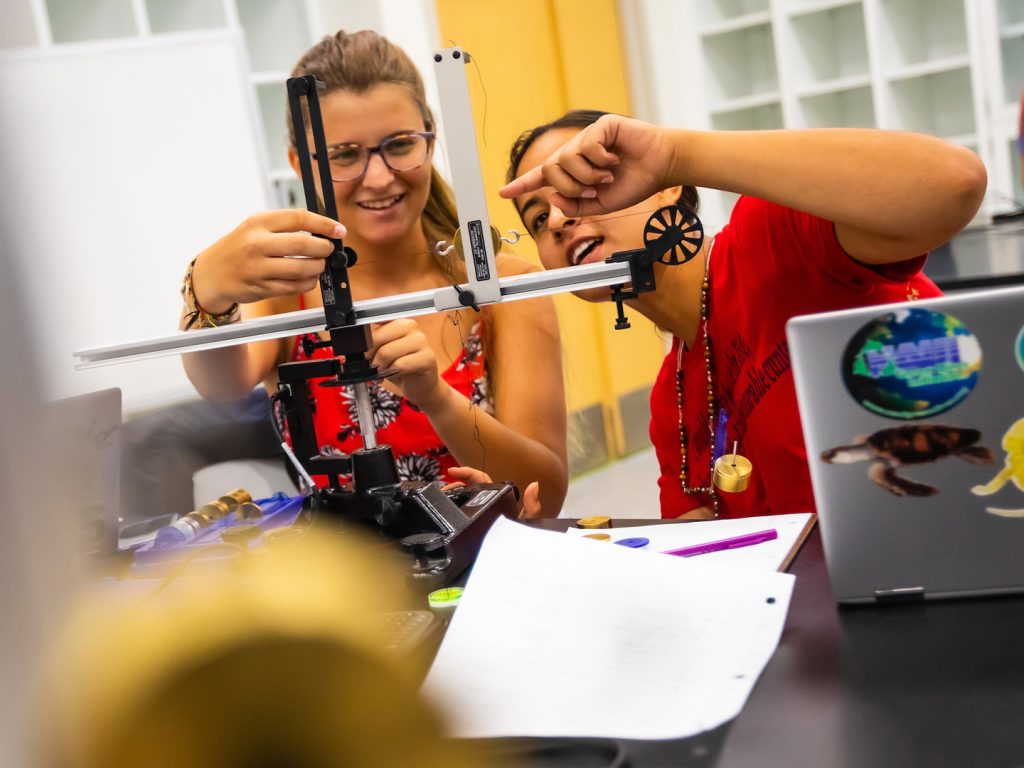As a Physics AOC at New College, you have access to top-notch facilities and equipment that are rarely available at other leading liberal arts colleges.

About the Physics Area of Concentration
The physics program is designed to provide a thorough grounding in the central areas of physics, allowing for flexibility in pursuing individual interests in depth. It addresses the needs of both majors and non -majors through courses and tutorials in theoretical, experimental, and computational physics.
Students participating in the physics program become familiar with the facts and processes of physics and learn to think logically. Those whose interests expand beyond the introductory level will find small classes, intensive work, and challenging projects. They will also find state-of-the-art equipment for doing research in the laboratory, including an atomic force microscope, a micro-Raman spectrometer, an X-ray diffractometer, an X-ray fluorescence spectrometer, micro-spectrophotometer, and a Q switched Nd:YAG laser with second and fourth harmonic emission. Joint or double areas of concentration with other disciplines are possible. For example, combinations of physics with mathematics or chemistry are common. Some of our graduates go on to work for industry or government, but most continue their education in graduate school.
“This recognition [Awarded with Outstanding Chapter Award] is a high honor for New College of Florida and helps reaffirm our college’s academic commitment to physics and mathematics particularly. I am proud to be a part of such a motivated community of students and faculty. The dedication and passion for physics has become contagious and has allowed for the development of a true ‘physics phamily’ in our SPS chapter.”
Matt Mancini
NCF chapter president
Awarded Outstanding Chapter Award (2019)
Featured Course
PHYS 3475
Thermal Physics
Thermal physics makes the connection between the microscopic and the macroscopic thermodynamic behavior of systems. It is the foundation of the behavior of all gasses, liquids, and solids. This includes phase transitions and critical points. We will begin by developing the Boltzmann-Gibbs equation. From this, we will derive the rules of thermodynamics.
Recent courses
- Advanced Electricity and Magnetism
- Descriptive Astronomy
- Introduction to Modern Astrophysics
- Modern Physics
- Physical Optics
- Physics I
- Solid State Physics
- Thermal Physics
Career Pathways
- Scientist
- Engineering
- Astronomy and Astrophysics
- Research
- Education
- Biophysics
- Particle Physics
Contact Us
Natural Sciences Division
Phone Number
Email Address
Location
Heiser Natural Sciences Complex 172C
Physics Faculty
Dr. Donald Colladay
Professor of Physics
George Ruppeiner
Professor of Physics and Astronomy
Dr. Mariana Sendova
Professor of Physics
